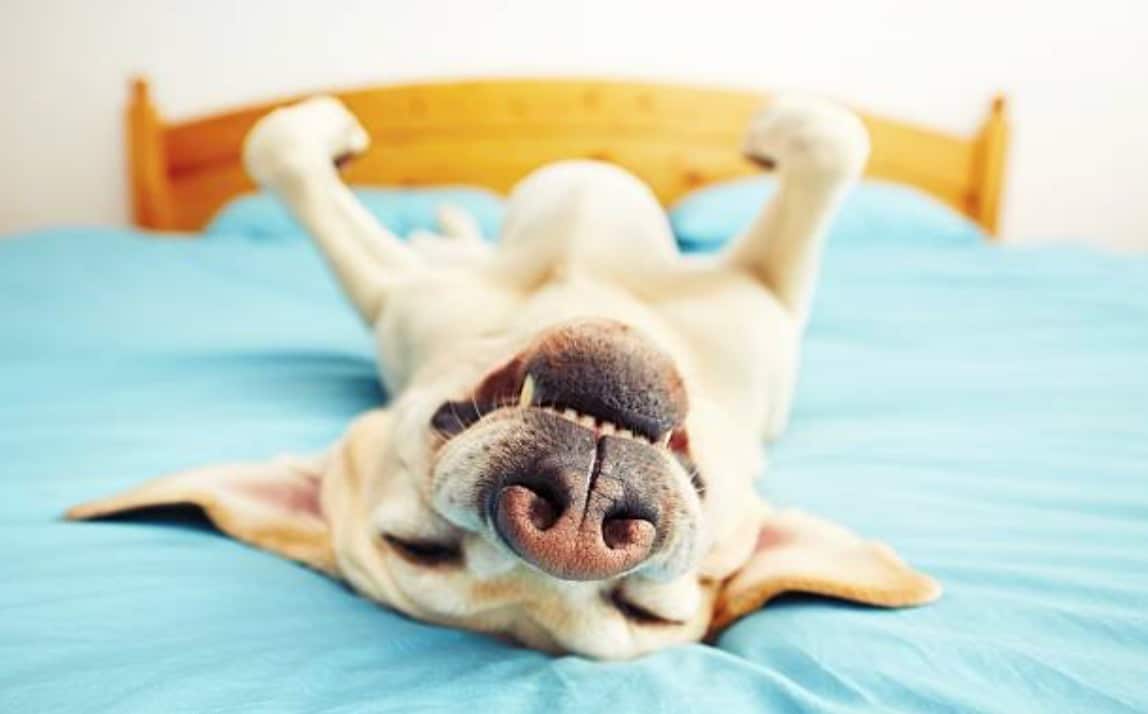Why does my dog cry in his sleep
All owners have seen their dogs squeak or move in their sleep. Dogs, like humans, are capable of dreaming while they sleep. You should not wake them up and let them finish their dream.
Dogs spend a lot of time sleeping from an early age. Puppies sleep about 18 to 20 hours a day. Sleep time gradually decreases over time, with adult dogs sleeping 10 to 15 hours per day. The more intense a dog's physical activity is during the day, the more sleep the dog will get.
Like humans, dogs have sleep cycles that last an average of 2 hours and consist of :
• Deep sleep phases (on average 1h30): the cerebral activity of the dogs is slowed down.
• Rem sleep phases (on average 30 min): the dogs present a strong cerebral activity (hence the term of REM). Eye movements and decreased muscle tone can also be observed. The duration of REM sleep is more important in puppies than in adults.
Dog cry in his sleep
Professor Stanley Cohen of the University of British Columbia has shown that the brain activity of dogs during their sleep is comparable to that of humans. This tends to confirm that dogs also dream. During their dreams, dogs can whine, bark, move their legs, run, have spasms... Their eyes can be closed or half closed. It is during REM sleep that dogs would dream mostly.
He also determined that small dogs dream more than large dogs: a small dog can dream every ten minutes against every hour for a large dog. But the dreams of large dogs last longer.
Researchers have determined that dogs dream about things they have experienced during the day, just like humans. So dreams are very different from one dog to another. The type of dream varies depending on the activity and breed of the animal (a hunting dog may dream that it is chasing prey, a family dog may dream of playing with its owners, etc.).
The dog should not be disturbed in its sleep even if it barks or whines, this is quite normal. Sleep is essential for recovery, memory and growth in the puppy.
To help your dog get the best sleep possible, provide a comfortable bed. For senior dogs, memory foam mattresses are very popular for relieving joint pain. In the summer, cooling mats will keep your dog happy.
Good to know: it is preferable not to make your dog sleep with you in your bed. Choose a comfortable bed for your dog when he arrives home and place him in a corner where he can't control who comes and goes.
If your dog is having trouble sleeping, talk to your veterinarian. Older dogs in particular may have sleep disorders with alternating sleep/wake cycles.
Just like humans, dogs are capable of dreaming during sleep. When they dream, dogs may growl, bark, etc., without knowing what exactly they are dreaming about!

